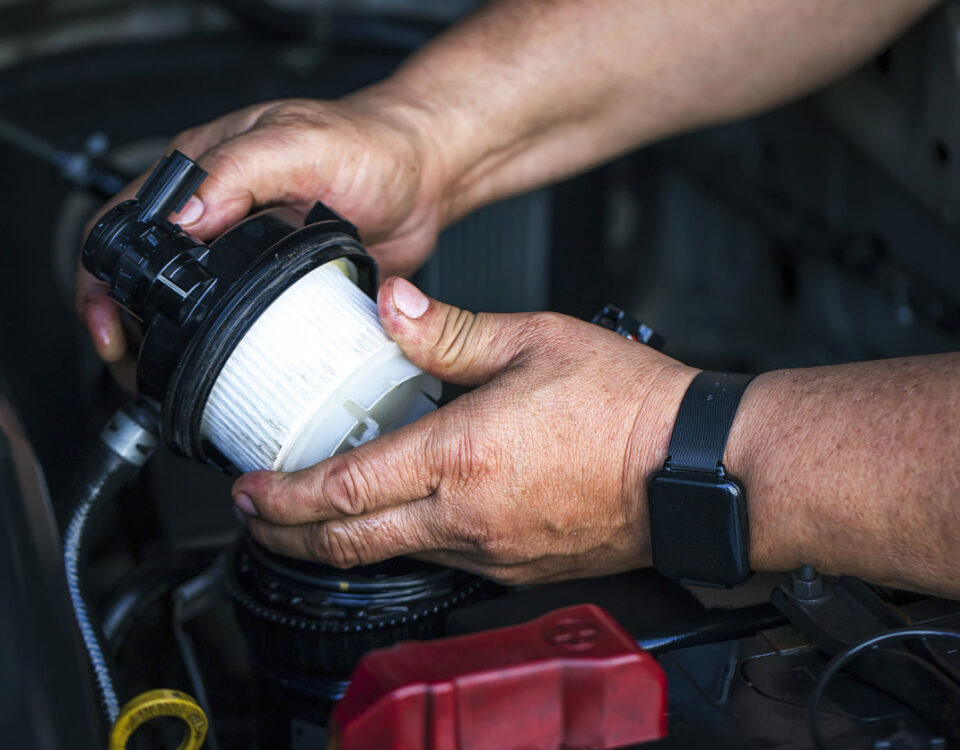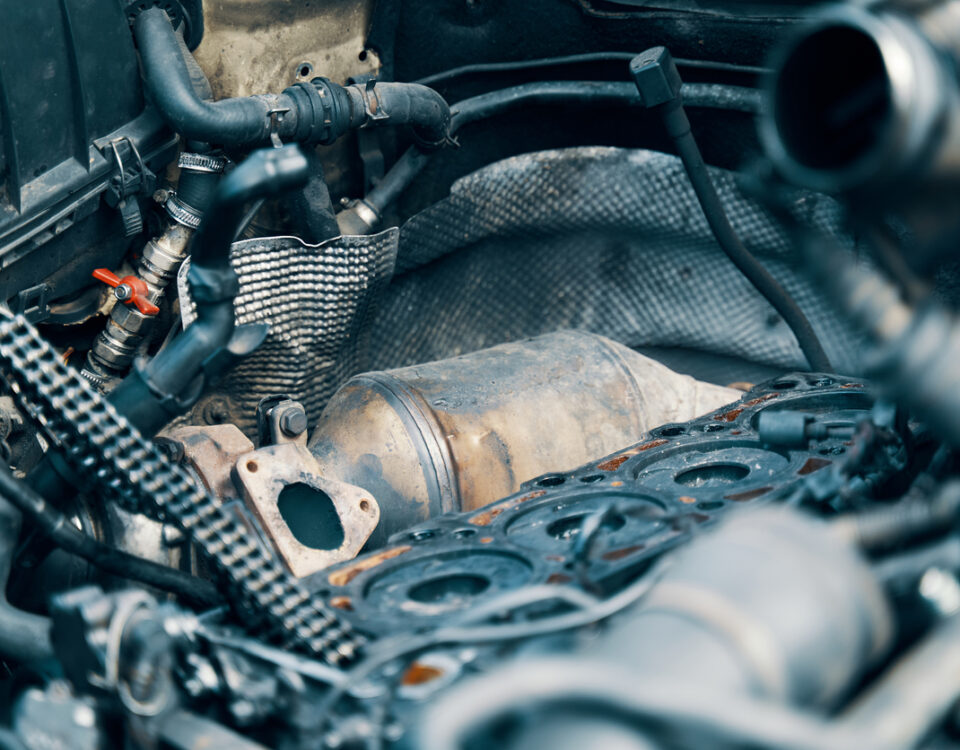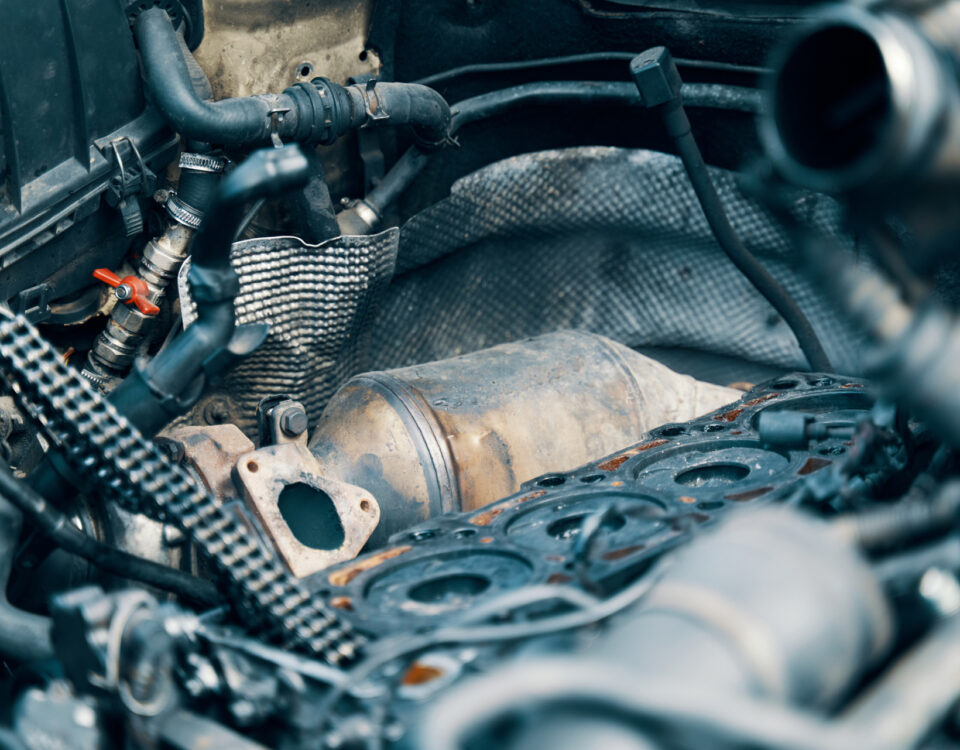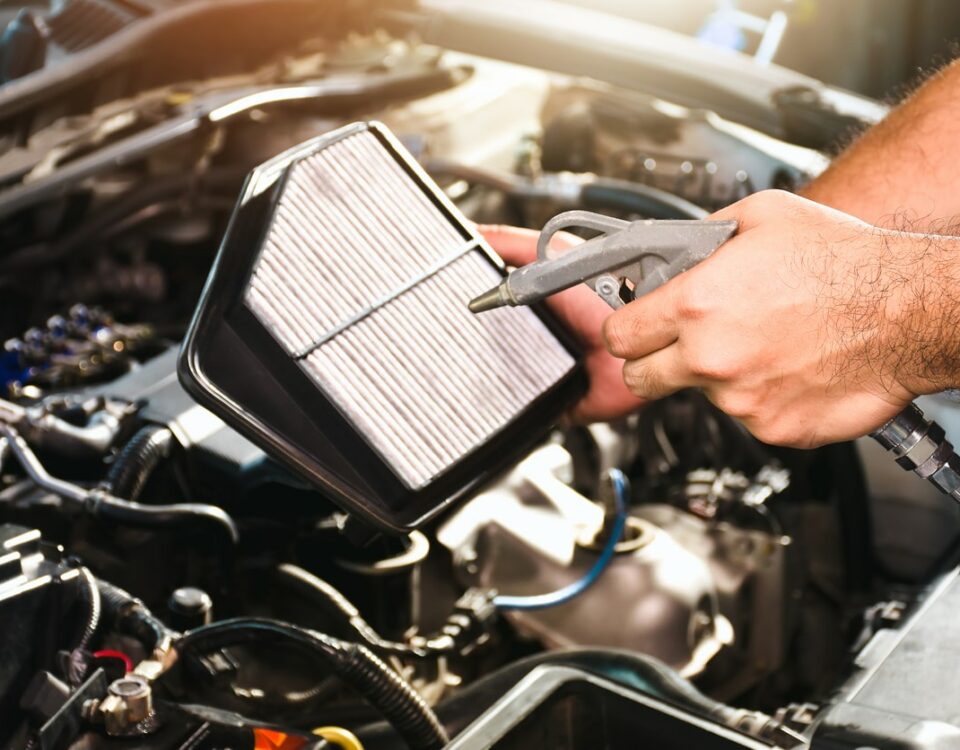What are DPF and EGR Delete?
Diesel Particulate Filters and Exhaust Gas Recirculation systems (DPF and EGR, respectively, for short) are both designed to limit harmful emissions.
While they perform an important function, they can limit the performance and power of your engine, especially if they are malfunctioning or clogged up with particulates from your engine.
For example, DPFs remove harmful particulates from your exhaust gases with little to no downside until they start to clog up. A blocked or obstructed DPF will restrict airflow, making it harder for your engine to function and even causing engine failure in extreme cases unless you take the time to clean your DPF regularly.
Similarly, EGR works to reduce the number of nitrogen oxides (NOx) in your exhaust and lower your engine temperature by diverting a small amount of exhaust gas into the exhaust manifold. Adding exhaust gas (which is no longer combustible) to the engine works to dilute the air in the combustion chambers, lowering the power and temperature of the combustion, reducing your engine power.
The side effects of reduced engine power and performance have caused many motorists to consider getting rid of these parts entirely – a procedure is known as DPF and EGR delete.
Is EGR and DPF Delete Legal?
Unfortunately for motorheads in the UK, it is currently illegal to remove or disable your DPF and EGR, and any vehicle without these parts (where applicable) will fail its MOT. Fortunately, not every vehicle has these parts fitted as standard, so you may not even have to worry about EGR and DPF delete in the first place.
For example, Diesel Particulate Filters are only fitted to diesel cars (as the name implies), and many newer cars use variable valve timing or other means to control Nox gases instead of EGRs. Still, if your car is fitted with a DPF or EGR, then you should do your best to maintain them but otherwise, leave them alone if you want a working car with a valid MOT.
What does DPF and EGR Removal do?
Aside from increasing your risk of being charged with motoring law violations, removing your DPF and EGR can improve your car’s power, performance, and fuel efficiency. Since DPFs and EGRs effectively reduce engine performance by obstructing your exhaust and diluting the fuel/air mix in your combustion chambers, removing them may result in:
- Improved fuel economy
- Decreased engine temperatures
- Minor increases to engine power
- Smoother drive
However, there are some serious drawbacks to DPF and EGR delete procedures, such as:
- Legal consequences – fines, points on your license or even jail time
- Reduction in overall horsepower
- High Costs, similar to DPF/EGR installation
- You will fail your MOT
Do DPF and EGR delete increase power?
Because DPFs and EGRs obstruct your exhaust and dilute the air/fuel ratio in your engine, removing them may help to increase your engine power. So-called DPF and EGR deletes remove the restrictions on your engine intake and exhaust, allowing your engine to generate more horsepower and torque at the cost of increased engine temperature and more harmful particulates in your exhaust gases.
Moreover, removing these parts can help increase reliability, as you sidestep issues like exhaust clogging and engine overheating caused by DPFs and EGRs. However, you won’t see a dramatic improvement from removing these two components, so don’t expect to see supercharged performance after removing a filter from your exhaust.
What are the benefits of EGR delete?
Exhaust Gas Recirculation Systems are designed to lower your engine’s internal temperature and reduce production of harmful nitrous oxide gases, but they also restrict engine performance. By recirculating exhaust gases within the engine system, EGRs limit engine power and efficiency as a side effect of lowered engine temperatures, so removing it may result in:
- Improved fuel economy – increasing the amount of pure air and fuel in the combustion chamber results in a more efficient engine.
- Extended DPF Function – with a higher air/fuel ratio, your engine should produce fewer pollutants, meaning you can drive for longer before your DPF gets clogged.
- Simpler Repairs – without an EGR pumping exhaust gases back into your engine, you benefit from a simplified engine function and fewer pollutants in your engine, extending the life of your engine.
Is it Worth Deleting DPF?
All modern diesel cars in the UK are fitted with particulate filters as standard to comply with environmental regulations regarding exhaust gases. Although some people think of DPFs as a liability because they can affect engine performance when they get clogged, removing your DPF is generally not worth the risk.
Firstly, removing a DPF is more complicated than it might seem, as your onboard computer (or ECU) will lock the car into ‘limp home mode if it senses the DPF is defective or missing. Secondly, once you remove your DPF and fool your cat into thinking it’s okay, you risk criminal penalties since it is illegal to drive a vehicle with the DPF removed.
Does EGR delete add horsepower?
Deleting or disabling your EGR is unlikely to add horsepower because it only provides a slight change to the air contents of your engine’s combustion chambers. While EGR deletes do provide a purer air-fuel ratio, the difference is minor, and any horsepower gains will be small – likely in the range of 0-5 HP.
Alternatively: If you believe that your DPF or EGR is holding you back, why not consider getting an ECU remap to improve your car’s performance? This simple procedure involves reprogramming your Electronic Control Unit) for enhanced power and/or efficiency, and it’s completely legal!
Conclusion
While many people are unsure about the point of Diesel Particulate Filters and Exhaust Gas Recirculation systems, these components are vital in controlling diesel emissions and are legally required! Getting rid of them will net you minor power increases at best and a criminal record at worst, so it’s safe to say that DPF and EGR deletes aren’t worth the effort and cost.



